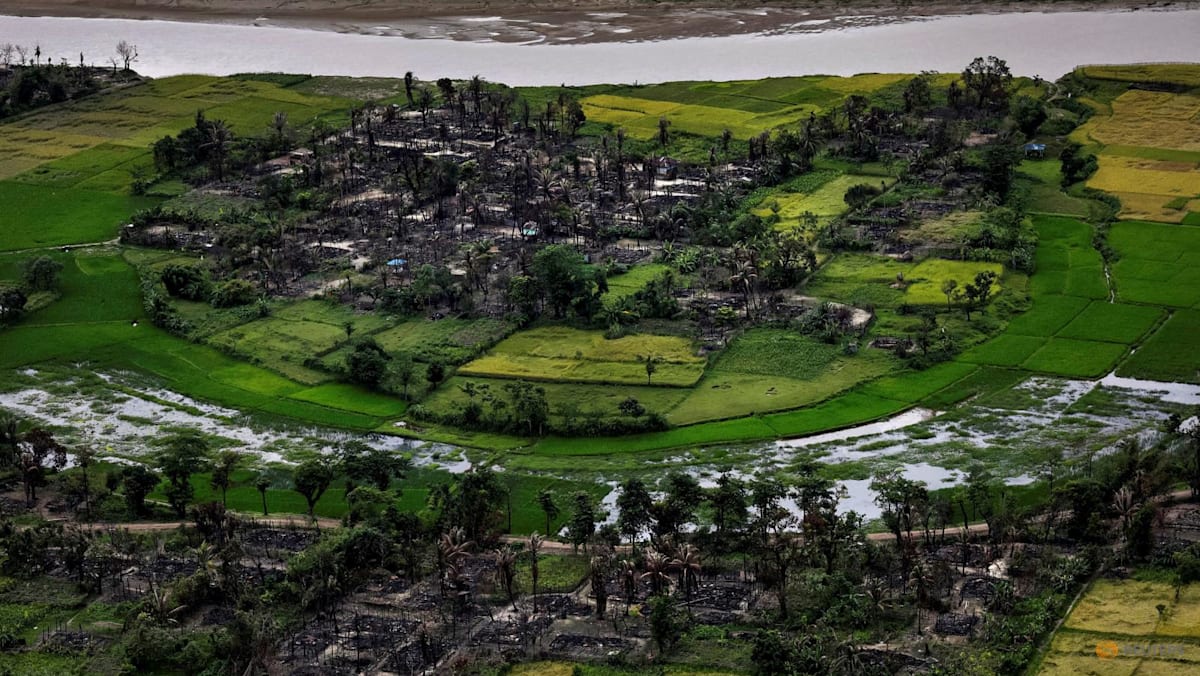“Private companies and associated individuals played a direct role by providing machinery and labour to bulldoze villages and build infrastructure under state contracts,” according to the investigation.
For instance, in the village tract of Inn Din, where Reuters reported in 2018 on the killing of 10 Rohingya men, the military destroyed settlements to build a new facility, according to IIMM.
“The base was built directly over the remains of Inn Din (East and Rakhine) villages, with cleared land replaced by new roads, permanent buildings, fortified compounds and two helipads,” the report said.
INVESTIGATORS FACE FUNDING CUTS
Myanmar has been in political turmoil since the military staged a coup in February 2021, ousting a civilian government led by Nobel laureate Aung San Suu Kyi and triggering a civil war.
The IIMM was established by the UN Human Rights Council in 2018 to investigate serious international crimes committed in Myanmar since 2011 to facilitate prosecutions. But it is grappling with deep funding cuts that it says could affect its ability to gather evidence.
An IIMM spokesperson said its open-source investigations team is directly affected and does not currently have funding to continue its work beyond year-end.
The Rohingya now face renewed threats of violence and displacement as fighting rages in Rakhine state, with some members of the minority community taking up arms.
“There is widespread agreement in the international community that Rohingya must be allowed to return home to Myanmar once conditions exist that allow for their safe, voluntary, dignified and sustainable repatriation,” said IIMM chief Nicholas Koumjian.
“However, in many cases their homes, even their villages, no longer exist.”
